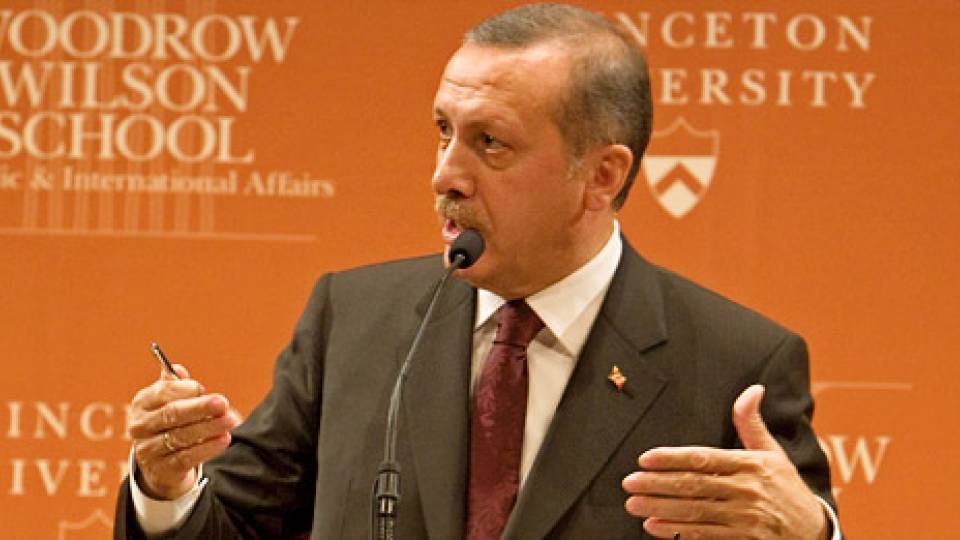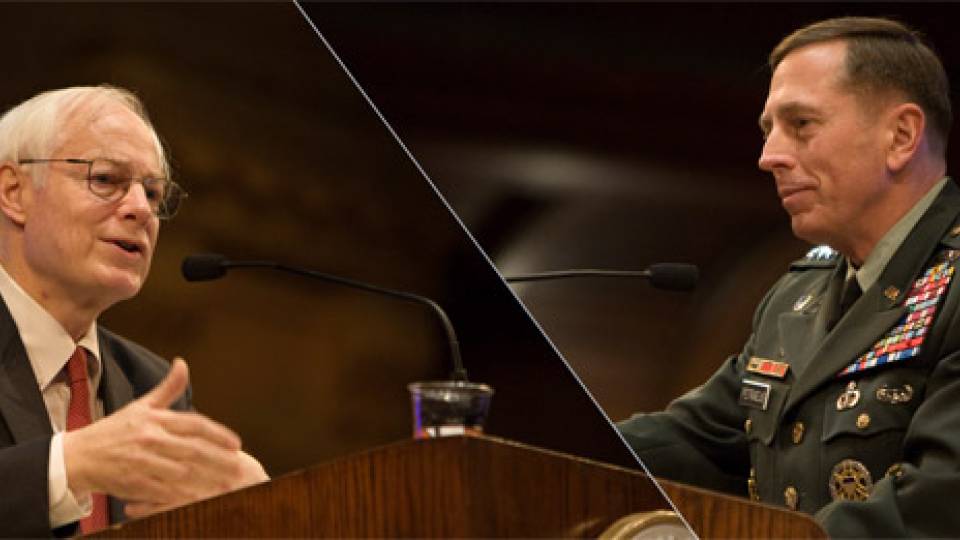German Foreign Minister Joschka Fischer, moving beyond his government's policy clash with the United States prior to the war in Iraq, advocated multilateralism and "positive globalization" in an address Wednesday, Nov. 19, at Princeton University.
"America and Europe can master the challenges of the 21st century, but only if we act together," Fischer said to a packed audience in Dodds Auditorium, Robertson Hall.
A member of Germany's Green party, Fischer has been foreign minister since 1998. His speech was sponsored by the Woodrow Wilson School of Public and International Affairs and the Liechtenstein Institute on Self-Determination .
"A new totalitarianism, Islamist terrorism and its inhumane jihad ideology, poses a threat to peace and stability, both regionally and globally," Fischer said, adding that "positive globalization is the real strategic response to the deadly challenge of a new totalitarianism."
"In political terms, this positive globalization must lead to a reorganization of the international system of states," he said. "We need more than strong democracies based on a stable foundation of values. We also need strong multilateral institutions -- first and foremost a reformed U.N."
Describing the United States and the European Union as "two pillars of a bridge across the Atlantic," Fischer identified three primary elements crucial to maintaining stable trans-Atlantic relations.
The first element Fischer described was the "unconditional commitment of the Western democracies to their own fundamental values: freedom, human rights, tolerance, democracy, the rule of law and the social market economy."
His second element was the "commitment to and respect for the international order based on shared values, the law, consent, cooperation and participation." He emphasized that the international order should not be based on force but on "enabling the greatest possible number of states and their citizens to participate politically, economically, socially and culturally in the shaping of the globalized world."
Fischer's third element was building the "political determination and military strength to avert new dangers" in an effort to "destroy once and for all totalitarian networks and ideologies built on hatred."
In concluding his speech, Fischer said that combining these three elements "will guide us in making our joint contribution toward a peaceful, just and democratic world order."
Contact: Lauren Robinson-Brown (609) 258-3601

